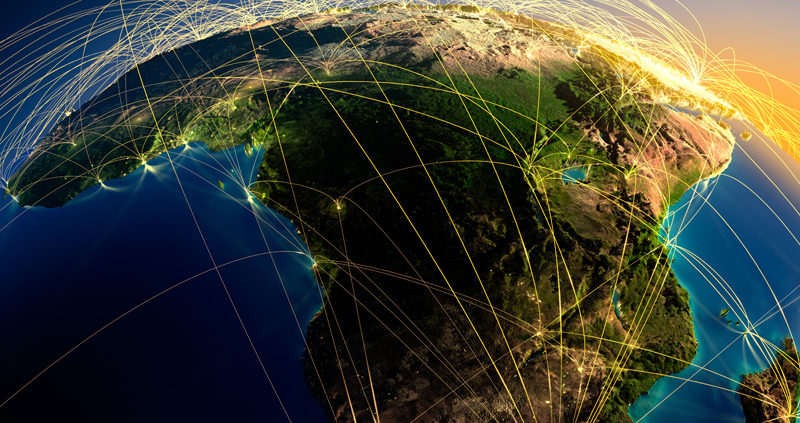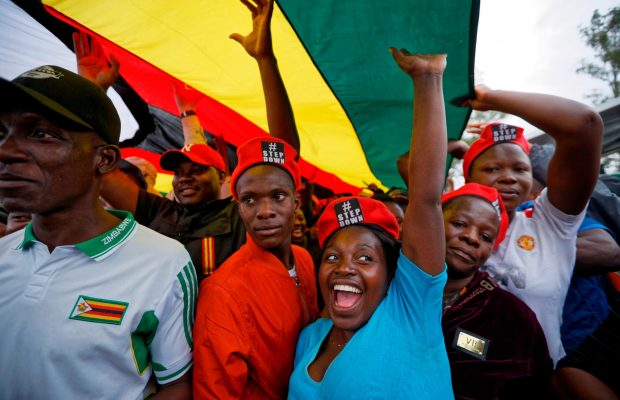The UK is teaming up with Standard Chartered Bank to lend $100m to Zimbabwean companies in what will be the British government’s first direct commercial loan to the southern African nation’s private sector in more than 20 years.
The loan is the biggest sign of a thaw in the UK-Zimbabwe relationship since London imposed sanctions on Robert Mugabe’s regime in the early 2000s. The rapprochement follows Mr Mugabe’s forced resignation in November in a “soft coup” that ended his 37-year rule.
The CDC, Britain’s development finance institution, will share the default risk on loans to provide foreign exchange to dollar-starved Zimbabwean businesses that are struggling to operate.
Nick O’Donohoe, the CDC’s chief executive, said his organisation had been preparing the loan facility since the day Mr Mugabe was replaced by his former deputy, Emmerson Mnangagwa.
“We think it’s pretty significant,” he said, adding that the last direct CDC loan to Zimbabwe was to a fish farm in 1994. “We are not aware of any commitments that have been made by anybody since the change of government.”
Mr O’Donohoe sought to head off criticism that western governments should not start lending until after a presidential election scheduled to take place by August. The planned loans were to the private sector, he said, and did not represent an endorsement of the government.
Tendai Biti, an opposition politician, said foreign governments should wait to lend until credible elections had taken place. “This attempt to put lipstick on the crocodile is most unfortunate,” he said, alluding to Mr Mnangagwa’s reptilian nickname.
Mr Mnangagwa has promised to hold a credible election. But opposition officials point out that he was for years a powerful figure in Mr Mugabe’s autocratic regime and is leading Zanu-PF, the party that has ruled since independence in 1980, into the poll.
“The elections are only a few months away,” Mr Biti said. “Let’s see the quality of this election first.”
Zimbabwe has been starved of foreign loans since it defaulted on its debt to the International Monetary Fund in 2001 following a dispute with the international community over chaotic land redistribution to war veterans.
Recommended
Analysis FT Secondary Schools
Wary Zimbabweans prepare for first election without Robert Mugabe
The country was once a regional exporter, but when the economy plunged into crisis in the 2000s many businesses collapsed or scaled back. The government stopped printing the Zimbabwean dollar in 2009 and the US dollar became the main traded currency following a bout of hyperinflation. But a dollar shortage has deepened in recent years.
Without US dollars, businesses cannot pay for spare parts or inputs, the CDC said, adding that even those still running were operating at as little as 20 per cent capacity.
The CDC and Standard Chartered are finalising a list of companies that can access loans that are likely to focus on the food processing, manufacturing and agricultural sectors. The loans, which will be for up to three years, can be used for capital expenditure or working capital.
“Zimbabwe’s economy has been shattered over the last two decades, yet holds real potential,” Mr O’Donohoe said. “If a new government in post-election Zimbabwe encourages investment and pro-business policies, Zimbabwe can be one of the great investment success stories of the next decade.”
Sunil Kaushal, regional chief executive of Standard Chartered Bank, said the loan facility was similar to that of a previous partnership with the CDC when the two lent to Sierra Leone at the height of the Ebola epidemic in 2015.
Natalie Payida Jabangwe, chief executive of EcoCash, a mobile money service, welcomed the new lending. “Whatever happens pre- or post-election, we need to see this type of capital injection,” she said.
https://www.ft.com/content/95e7680a-58fa-11e8-bdb7-f6677d2e1ce8



